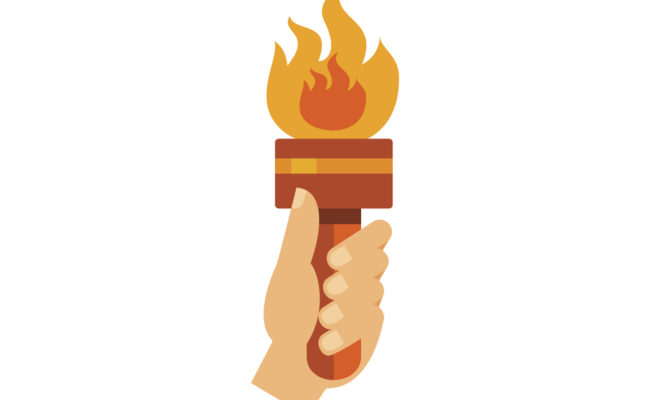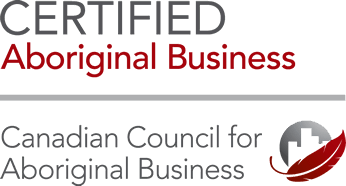Olympics, Calgary & “could’ve gone better” media interviews
This post isn’t about the Olympics. Nor the plebiscite to host the Olympics. Nor how our political leadership seems inept to lead at this point in time. And it is definitely not about the unnecessary mess that got us to today. Side note: read Adam Pekarsky’s post on The Ampersand An Olympic Sized Opportunity to get the real goods on that.
This post is about media interviews and the importance of being prepared for hard questions.
The impetus to speak on this subject comes and goes almost daily as I listen to, watch, read and generally consume media interviews of all sorts. Some are great. Some not so much. And some entirely cringe-worthy.
Now, yesterday was special.
Two weeks ago, our only newsworthy subject was cannabis covered from top to bottom, upside down, sideways and six ways to Sunday. Today, my friends, we move on to the Olympics.
But first, let’s very briefly remind ourselves about the important role of journalists today. In The Elements of Journalism authors Kovatch and Rosentiel identify foundational elements of journalism – a timely reminder in the era of free press bashing, thank you Fake News Trump.
“Good decision-making depends on people having reliable, accurate facts put in a meaningful context. Journalism does not pursue truth in an absolute or philosophical sense, but in a capacity that is more down to earth.
Journalism, then, is more than providing an outlet for discussion or adding one’s voice to the conversation. Journalism carries with it a responsibility to improve the quality of debate by providing verified information and intellectual rigor. A forum without regard for facts fails to inform and degrades rather than improves the quality and effectiveness of citizen decision-making.”
Back to Calgary’s Olympics 2026 coverage.
It might seem that all key spokespeople on this file would be very ready for their moment with hard talking points. Like, oh, I don’t know, let’s say the Federal Minister for Sport, Kirsty Duncan. Possibly even more so when she goes on to CBC Calgary’s Eyeopener with David Gray known for his no-nonsense interview style.
I typically find Gray’s interviews insightful and entertaining. But one could not help but feel him swivel in his seat, headphones on, brow furrowed during this particular session.
Click here to listen to the full segment (trust me, it’s worth it) but let’s start at the beginning which reflects the entire painful seven minutes.
Gray: In two weeks plus a day, Calgarians are supposed to vote yes or no on whether this city should bid on the 2026 Olympics. But over the past three days, a storm has erupted around the bid, the crux of the issue: money of course.
Here’s how it unfolded: late Friday afternoon word came out from the federal government that they were willing to bring forward $1.7 billion. A big number. And everybody was celebrating. But then it seems, somebody caught on to a catch. The money would only be offered if the province and City of Calgary could match it. … Since then, we’ve heard barbs thrown by provincial finance minister Joe Ceci, and Calgary’s mayor Naheed Nenshi. So to better understand the federal government’s position, we’re joined by federal minister of sport, Kirsty Duncan. Good morning.
Duncan: Good morning David lovely to be with you this morning.
Gray: And thanks for joining us. What have the negotiations been like this weekend? Can you tell me what’s going on?
Duncan: Let me just start by saying I love the Olympics; I mark time by the Olympics. Athlete, coach, judge all my life. You know I think of the seven perfect 10s by Nadia Comăneci, in Montreal.
Gray: Oh that’s beautiful. Wonderful. What…
Duncan: Or Kerri Strug when she landed that one-footed vault in 1996. Or Elizabeth Manley when she went skating around the rink in 1988.
Gray: Minister are you reading notes? I have a simple question: where are we at with negotiations on the money?
Duncan: Listen we have been clear David since the very beginning. We came forward in March 2018 along with our partners, the City of Calgary and the province of Alberta to go forward with a winter games bid. We have always been clear that we will fund up to 50% of the public contribution to the games, that is the policy on our website and we’ve done that. We’ve come forward with a commitment of $1.75 billion.
….
Discussion continues on bad faith negotiations, lack of clarity
…
Gray: Minister what are those discussions about? What needs to be talked about if you feel your position hasn’t changed since day one, why are there discussions going on?
Duncan: Listen it’s been a busy weekend and people are working hard. I’m proud to work with our partners the city of Calgary and province of Alberta, and we keep doing the work.
Gray: Minister that doesn’t come close to answering the question. There are Calgarians who in two weeks from now are being asked in good faith to go out and vote on a plebiscite. What’s the sticking point? What’s the issue? Be clear about it if you could.
Duncan: David I’m well aware of the timelines for the plebiscite. We absolutely support the plebiscite. We support that Calgarians should make their voice heard and should Calgarians decide to go forward with the bid we will be right there beside them (cell phone rings) and we’re still working at it. We’re still at the table.
Gray: But why such a closed process? Why do you keep dodging the point?
And on it goes. What happened here? Well, it seems the minister was not prepared with answers for the hard questions.
In any interview scenario, it’s all about the preparation – especially for the tough ones.
Preparing for Killer Questions
I’m not saying that the above questions were killer questions. They should have been expected. That’s what the interview was about. But let’s move on.
Why prepare for killer questions even if you feel you know the answers? Because what comes out of your mouth when the interview starts, may not be what’s in your head. And that may get you in trouble.
It’s easy to get anxious and tense when placed in a stressful (live) interview, but by preparing effectively for tough questions (and off-the-wall, not forgetting the opportunistic questions), the better you’ll be able to handle them. Here’s how to do that:
1. List the questions.
Identify them instead of crossing your fingers (and toes) that they won’t be asked. What are the worst things you could be asked? Tackle them head on by writing all possibilities down in aggressively negative language.
2. Answer them.
Write your answers down in concise, plain language, in key message format which means no jargon or corporate double talk. Think of who you’re really trying to communicate through the medium you’re being interviewed in. Talk to your audience so they understand what you’re saying.
Quick tips on good answers
Should be in positive, declarative language (don’t repeat a negative phrase or word in your answer)
Stay under 150 words
Tell a story or illustrate an example for each point
3. Rehearse them.
Record yourself out loud and on camera. This will give you a good feel for how you are presenting.
4. Edit your answers.
What didn’t work in your answers? Rewrite and continue to rehearse until you’ve nailed it. Are your answers too long? Shorten them.
5. Keep rehearsing.
The more you practice, the more at ease you’ll feel in a stressful environment like a live interview. Have key messages available, but please, do not read them off the sheet. You saw how well that went over in this example. A reporters is nobody’s fool and will see through you if you try to avoid the question.
Lastly, research the reporter and the medium in advance in order to understand who they are, viewpoints, and the agenda (if any). And remember, NOTHING is off the record. Ever.
BONUS: Watch this Bob Newhart clip for reminders of what not to do in an interview.
Interested in learning more? Get in touch for real, effective (and real fun) customized media training.


